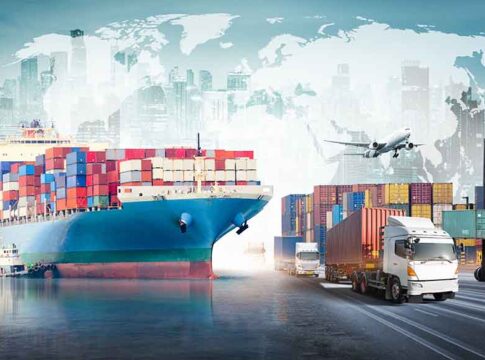Russia has attacked Ukrainian ports, causing further havoc on the global market.Since September 1st, Russian attacks have damaged six civilian vessels and grain storage facilities. Following the collapse of a UN-backed initiative, Ukraine has opened a new Black Sea shipping corridor. The British prime minister has criticized Russia’s actions as a threat to global food security.
Escalating Attacks on Ukrainian Ports
Russian attacks on Ukrainian Black Sea ports have escalated, causing major disruptions to critical aid and grain shipments. Since September 1, these attacks have caused damage to six civilian vessels and grain facilities, with at least four cargo vessels bombed between October 5 and 14. The strikes are having a significant impact on Ukraine’s ability to export grain, which is a critical supply line for underdeveloped regions on multiple continents.
Global leaders have slammed Russia’s attacks, including British Prime Minister Keir Starmer, who has described them as a direct threat to global food security. These military actions endanger critical international supply chains while exacerbating food scarcity problems in vulnerable regions.
UK Warns Russia's Black Sea Port Attacks Put Global Food Security at Risk https://t.co/lPdCe6btta
— gCaptain (@gCaptain) October 23, 2024
Impact on Global Food Supply
Prior to the Russian invasion in 2022, Ukraine was a major wheat and corn exporter, shipping over six million tons of grain per month. The most recent attacks have severely disrupted this critical trade route, affecting millions of vulnerable people in Africa, Asia, and the Middle East. The MV SHUI SPIRIT, which was carrying vegetable oil for Palestine and grain shipments for Egypt and southern Africa, was among the ships delayed.
“Russian attacks on Ukrainian Black Sea ports have increased rapidly, causing severe delays in delivering crucial aid to Palestinians and grain supplies to the Global South.” – British Prime Minister Keir Starmer –
Despite the ongoing war, grain sales remain crucial for Ukraine’s economy. In response to the collapsed UN-backed initiative, Ukraine has opened a new Black Sea shipping corridor. However, the timing of these attacks during Ukraine’s harvest season raises additional concerns about the long-term impact on global food security.
Statement of the Ministry of Defense of Ukraine
The Russian Federation has once again brutally violated the universal right to free navigation for the whole world and is deliberately undermining food security, condemning millions of people to starvation.
By openly threatening… pic.twitter.com/OJN1h5uBt5— Oleksandr Kubrakov (@OlKubrakov) July 20, 2023
International Response and Concerns
Russia’s actions have sparked widespread condemnation from the international community. Prime Minister Starmer has condemned Russia’s disregard for international law and UN principles, emphasizing the global implications of their actions. There are growing concerns about Russia’s apparent strategy of threatening Ukraine’s vital export infrastructure.
“According to the Prime Minister, these attacks have affected millions of vulnerable people in Africa, Asia, and the Middle East.” – The British Prime Minister, Keir Starmer
As tensions rise, the effects of these attacks reverberate throughout the world’s economies, threatening the stability of food availability in communities far from the conflict. The situation highlights the interconnectedness of global food security, as well as the far-reaching consequences of regional conflicts for international trade and humanitarian aid.
Sources:
- UK PM Starmer Condemns Russia’s Indiscriminate Strikes On Black Sea Ports
- Russian Strikes on Black Sea Ports Threatens Global Food Security: UK

